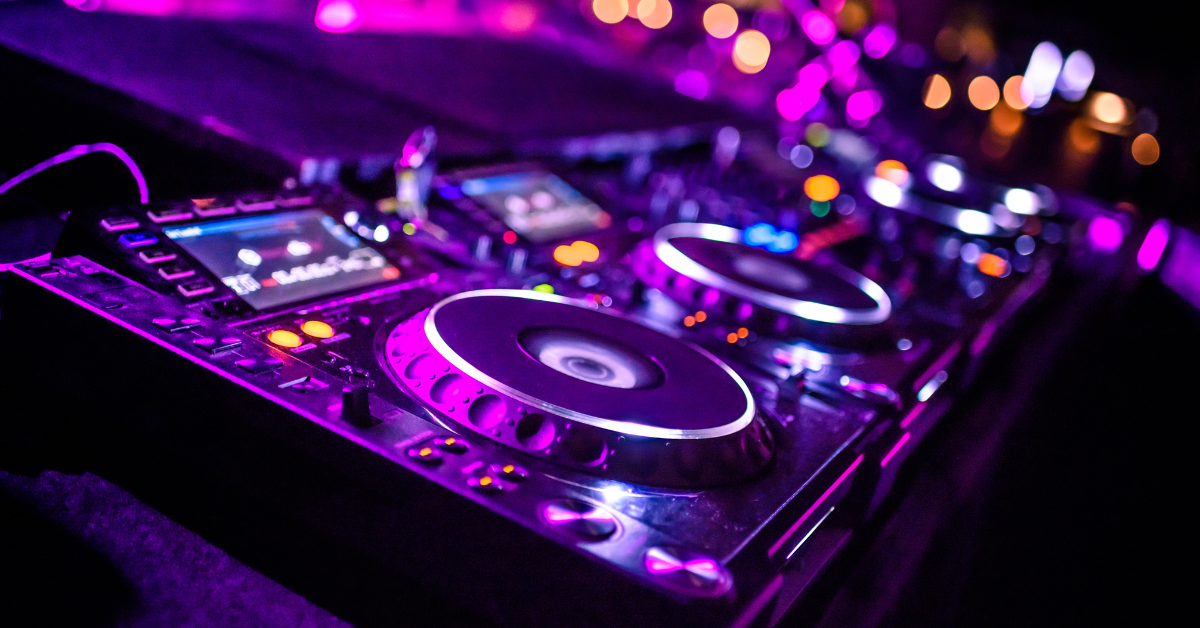What Technical Skills Should DJs Know?

When it comes to the art and science of being a DJ, technical skills are the backbone that support an artist’s creativity and stage presence.
In this guide, we delve into some of the essential technical skills that every aspiring DJ should know. Whether you’re a beginner figuring out how to start, a professional seeking to refine your expertise or you just want to pick up a new skill, mastering these techniques will arm you with the ability to craft memorable musical experiences for your audience.
Let’s explore the key technical skills that are integral to DJing:
Understand Music Basics
If you understand basic music theory, you will create better mixes and transitions. Learning about scales, keys, and harmonies will help you identify which songs will work well together so you can create the best beats.
Understanding rhythm and tempo is crucial for beatmatching, a foundational skill for any DJ. Knowing song structures—like intros, verses, choruses, and outros—will assist you in planning your sets and making smoother transitions.
Learn the Equipment
When it comes to DJing, your equipment is your toolbox. Understanding what each piece does is crucial. Turntables or CDJs are used for playing the music while mixing software is used to transition between tracks.
Knowing how to use headphones is essential for queuing up the next track without disrupting what the audience is hearing. Then, of course, you’ll need to learn your mixing. The more you practice, the more you’ll gain an intuitive understanding of your equipment and how to get the best sound and transitions possible.
Beatmatching and Mixing
Beatmatching is the process of matching the tempo of two different tracks so they can play harmoniously together. It is the cornerstone of DJing and takes a good amount of practice to master.
Mixing music goes a step further by combining two songs in a manner that forms a cohesive auditory experience. This can include techniques like EQing—adjusting the bass, mid, and treble to make tracks blend more seamlessly. When done correctly, beatmatching and mixing can create an immersive experience for your audience.
DJs are working with all types of music from Hip Hop to Electronic to Country. Making sure those different genres can flow and blend together during a performance is an important skill to have.
Related: Unleash Your Child’s Musical Genius: Music Production and Beat Making Classes at Bach to Rock
Effects and Sampling
Once you’ve got the basics down, you can start exploring effects and sampling. Effects like reverb, delay, and filters can add depth and excitement to your mixes.
Sampling involves inserting snippets of other tracks or sounds into your set, adding a layer of complexity and interest. It’s crucial to use these tools sparingly and strategically; overuse can overshadow the music itself and disrupt the flow of your set.
Scratching and Looping: Advanced Techniques
Scratching and looping are more advanced techniques that can elevate your sets to the next level. Scratching involves moving a vinyl record back and forth on a turntable to create unique sounds and rhythms. It’s a skill that takes time to master but can add a dynamic, interactive element to your performance.
Looping allows you to repeat a specific section of a song, creating opportunities for extended mixes and transitions. It’s a technique often used to maintain energy levels on the dance floor or to give yourself more time to prepare for the next track.
Take your DJ career to the next level.
By building on these technical skills, you’ll not only become a more versatile DJ but also gain the ability to adapt to different gigs and venues. Whether you’re performing at a wedding, as a club DJ, or a radio station DJ, these are the skills that will set you apart in the industry.
After you’ve mastered the technical skills, you’ll be ready to learn how you can engage the crowd and create truly memorable experiences for your audience. Remember, mastery takes time and a lot of practice, so be patient with yourself as you learn and grow in your DJ journey.
Bach to Rock’s Beat Refinery DJ school is one of the largest in the United States. Explore DJ lessons, music production classes, workshops, events, camps for kids, and parties at your closest music school.
